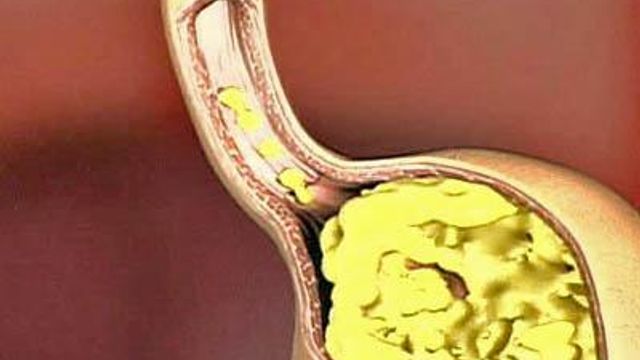UNC Researchers Test New Treatment for Acid Reflux
Health officials say acid reflux can be more than uncomfortable. It can lead to scarring or possibly cancer, but a new treatment could stop the problem before it becomes a bigger issue.
Posted — UpdatedThe answer used to be surgery to remove the esophagus, but now researchers at the University of North Carolina in Chapel Hill are leading a study of a new out-patient treatment.
With GERD, the sphincter muscle separating the esophagus from the stomach stops acting like a one-way valve.
Acid from the stomach goes up into the esophagus and causes pain. Approximately 13 percent of Caucasian men over the age of 50 with chronic GERD will develop Barrett's Esophagus, health officials said.
Barrett's Esophagus appears as visible scarring.
Paul Bailey, 60, complained of heartburn and acid reflux for more than 15 years. UNC gastroenterologist Dr. Nicholas Shaheen included him in a study to test a new out-patient treatment for Barrett's Esophagus.
The Halo 360 is an endoscopic treatment developed by Barrx Medical. It uses precisely controlled heat that burns the surface layer of tissue.
"It was, for a couple of days, a rather severe case of heartburn," Bailey said.
Bailey said the heartburn soon went away. A later picture of the treatment area shows only normal pink-colored tissue. He is still on prescription medication to control his acid reflux, but his big cause for worry is gone.
"From my perspective, it's been a huge relief; a weight off your shoulders," he said.
A previous alternative to surgery to treat Barrett's Esophagus is Photo-Dynamic Therapy (PDT). Patients are given a medication that makes them sensitive to a certain red wavelength of light.
Like the Halo 360, a balloon on the end of an endoscope is placed in the esophagus, but instead of heat, the device emits the red wavelength of light.
Like the ablation method in the Halo 360, PDT is supposed to burn the surface layer of cells in the esophagus, but Shaheen said there are certain drawbacks to the procedure. The sensitizing medication affects the entire body, so exposure to sunlight, even over the course of several days, could result in a severe burn to the skin.
Shaheen said it is more difficult to predict or control the amount of burning applied to the treatment area, and it requires a day or two in the hospital to monitor recovery. If you would like more information about treatment, you can call 919-966-0764.
The Halo 360 is an outpatient treatment. The burn is more precisely controlled, and patients may or may not need prescription pain medication as they heal from the procedure.
• Credits
Copyright 2024 by Capitol Broadcasting Company. All rights reserved. This material may not be published, broadcast, rewritten or redistributed.





